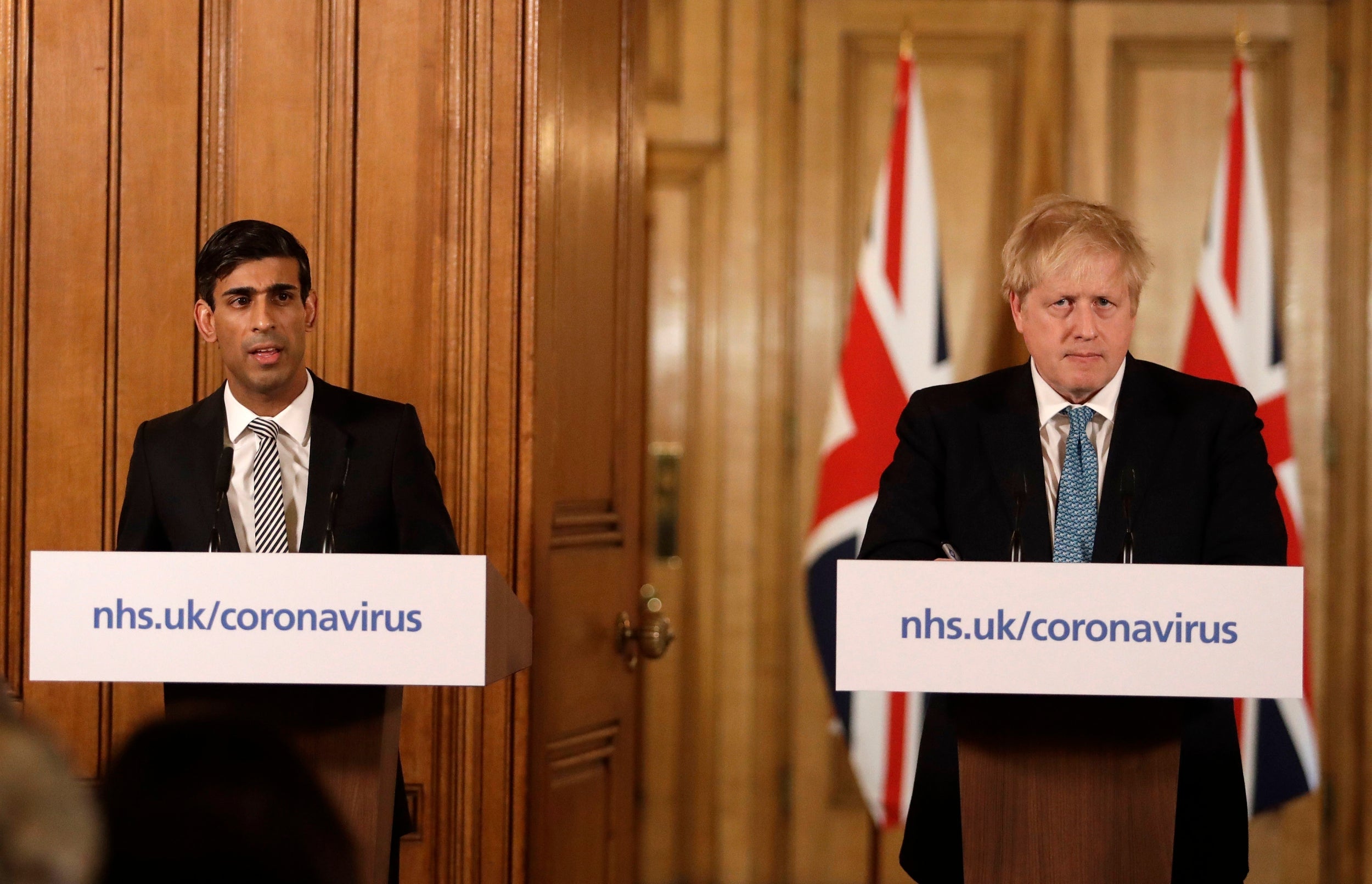The government’s coronavirus job support package is unprecedented – but does it go far enough?
The incentives created by the job subsidy plan seem broadly appropriate yet we simply cannot say with any confidence that the promise of government cash will persuade companies to retain staff through this crisis

Your support helps us to tell the story
From reproductive rights to climate change to Big Tech, The Independent is on the ground when the story is developing. Whether it's investigating the financials of Elon Musk's pro-Trump PAC or producing our latest documentary, 'The A Word', which shines a light on the American women fighting for reproductive rights, we know how important it is to parse out the facts from the messaging.
At such a critical moment in US history, we need reporters on the ground. Your donation allows us to keep sending journalists to speak to both sides of the story.
The Independent is trusted by Americans across the entire political spectrum. And unlike many other quality news outlets, we choose not to lock Americans out of our reporting and analysis with paywalls. We believe quality journalism should be available to everyone, paid for by those who can afford it.
Your support makes all the difference.Was this the missing piece of the jigsaw?
Until today we had interest rate cuts, commercial loan guarantees, mortgage repayment relief, grants for small firms – all designed to prop up businesses and households in the face of the economic hurricane created by official efforts to suppress the spread of Covid-19.
But what Rishi Sunak has announced today goes further than any of that.
There are, the chancellor told us, to be direct state grants to cover most of the payroll costs of companies, even as their revenues collapse.
The expectation in return? That these firms will not shed workers en masse in what looks almost certain to be a deep recession.
Something along these lines has been the demand from a host of labour market experts.
The design is similar to a scheme announced last week by Denmark.
So will it work?
Well, the chancellor repeatedly stressed at the press conference on Friday that what he was announcing was “unprecedented”. And that’s the crucial word.
This is not something that has ever been tried before, certainly not on this scale, so we simply cannot say with any confidence that the promise of government cash will persuade companies to retain staff.
Yet the incentives created by the core of the job subsidy plan seem broadly appropriate. The mechanism to deliver the funding seems practical.
The government is, quite rightly, signalling that the scheme will be extended in time if necessary and that there will be no financial cap. If firms are to have the confidence necessary to hold on to workers, their bosses need to be reassured that this support will remain for as long as it takes and however much it costs.
The support of trade unions and employers groups is encouraging.
And for those without employers, those five million self-employed, many of whom are likely to see orders and jobs dry up in the coming months? The increase in unemployment benefit payments is, of course, no compensation for a lack of work, but it will at least help sustain them financially through this crisis.
Broadly, the job support programme seems well designed. Yet we all know that the acid test is not how good it looks on paper but what happens to employment in the coming days and weeks of this crisis.
If workers are let go in their tens of thousands, if joblessness still surges, the chancellor and the government will, rightly, feel immense pressure to produce yet more unprecedented support.
Join our commenting forum
Join thought-provoking conversations, follow other Independent readers and see their replies
Comments